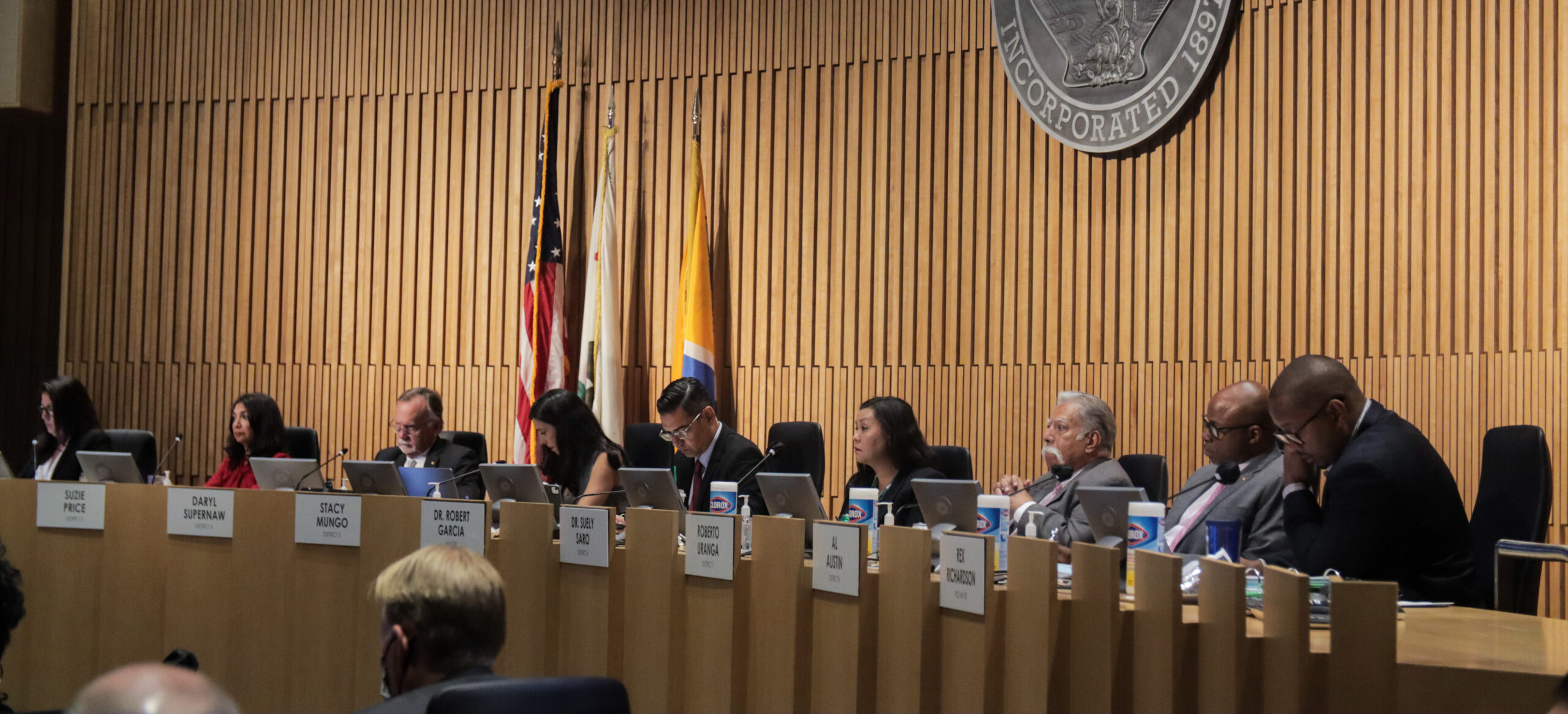Long Beach will wait until an economic impact report is completed next month to decide whether to place a minimum wage increase for employees at public health care institutions on the ballot or adopt the measure outright.
A petition seeking to raise the minimum wage for all workers at public health care facilities to $25 per hour was certified by Los Angeles County election officials this month, meaning the council now has two options: let voters decide on Nov. 7, or approve the ballot language as a city ordinance with zero changes.
The citywide minimum wage in Long Beach is $15 per hour for large companies and $14 per hour for companies with fewer than 25 employees.
The Service Employees International Union-United Healthcare Workers West (SEIU-UHW) is pushing the petition, which says workers ranging from technicians to those in food service have been underpaid while working through the pandemic as essential workers.
“Just because you’re short (in staff) doesn’t mean you’re not going to feed two floors of patients,” said Kimberly Estrada, a food service worker at Dignity Health St. Mary Medical Center. “We get it done because we have to; we care about our patients.”
A coalition of health care providers including MemorialCare, St. Mary and others in the region say the effort is unjust because it unfairly targets private health care facilities and would pay those employees more than workers at public institutions doing the same job.
“It excludes the majority of workers in the city,” said Kristen Pugh, vice president of advocacy and government relations for MemorialCare. “It could deepen inequities in the healthcare system and jeopardize access to care.”
Whether the measure’s adoption would lead to closures or negatively affect access to health care in Long Beach is unclear.
City Council members voted in June to look into the issue, but the city has struggled to find a firm to handle the study, which is supposed to inform the City Council on how the proposal could affect workers in the city and the city’s health care system.
However, it wasn’t until this week that the city was able to find a firm that was willing to take on the job under such a short timeline, noting that several firms rejected the bid because of turnaround time likely not allowing for completion of a true economic impact study.
The city announced this week it hired the Los Angeles County Economic Development Corporation, the same entity that conducted a similar study for the city when it was looking to increase the citywide minimum wage in 2015.
Johnny Vallejo, the city’s acting director of economic development, said Tuesday night that a survey is going to be circulated this week and the hope is that a report will be available to the council before its Aug. 2 meeting. It has until Aug. 9 to place any ballot measure or charter amendment on the ballot.
The 64-page report the LAEDC completed for the city before the council approved the 2015 minimum wage increase included several public meetings that allowed residents on both sides of the issue to weigh in, something that’s not likely to happen over the next two weeks.
Long Beach is the largest remaining city that is considering such a measure that is being backed by the SEIU-UHW. The Los Angeles City Council voted to adopt the measure as an ordinance earlier this year, but now the No On Unequal Pay Measure coalition is seeking a referendum to overturn the law from going into effect.
Other cities like Inglewood, Monterey Park and Duarte, where similar petitions were circulated, opted to put the issue on the ballot. Downey adopted it as an ordinance last week.
The coalition against the pay increase is being funded by the California Association of Hospitals and Health Systems, a group that has historically raised hundreds of thousands of dollars and injected them into political campaigns. Members of the association have warned over the past few weeks that the passage of the wage increase could lead to service reductions or an even greater shortage of workers than what currently exists.
“They have a lot of money to throw into this campaign,” Rene Saldana, an SEIU-UHW spokesperson, said. “What we’re trying to do is to get them to reinvest that money into health care and their patients.”
The SEIW-UHW has already contributed tens of thousands of dollars to this year’s mayoral race in support of Councilmember Rex Richardson, who is being supported by a number of labor groups in the region in his race against Councilmember Suzie Price.
If the issue is put on the ballot, neither Richardson’s nor Price’s camps are concerned that it will be an election issue.
Danielle Cenejas, a consultant on the Richardson campaign, said that ballot measures are generally not “turnout makers” but “turnout takers” because they require so much education for voters.
“We’re in a good spot and know we have a good message and we need to make sure we continue to push,” Cendejas said.
Orrin Evans, a spokesperson for the Price campaign, said that voters’ motivations in November are likely to be similar to what they were in June: crime, homelessness and housing.
If the minimum wage increase does go to the ballot it will likely join three other charter amendments being considered by the city that would change the way oversight of the police department is conducted, combine the city’s water and gas departments and permanently align the city’s election cycle with the state’s.
City Council to consider three charter amendments for Nov. 8 election
Long Beach to consider raising minimum wage for health care workers

